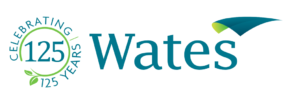Wates Group – Winner 2022, Best for Fathers
Wates set out to democratise flexible working, recognising that driving a culture change in their predominantly male workforce begins with men. The policy framework they have built supports the 44% of the workforce who are fathers and helps to shift perspectives on flexible working.
Family-friendly policy
Wates wanted to bust the myth that flexible working was only for mothers returning from maternity leave, and so overhauled their suite of policies to strengthen their offering to fathers. Paternity Leave was increased to eight weeks fully paid which can be taken in two blocks within the first year and renamed paternity/partner leave (PPL) to recognise the diversity of 21st-century family. Shared Parental Leave (SPL) was enhanced to 26 weeks fully paid leave to be taken at any time in the first year and is in addition to Maternity and Adoption leave.
Other family leave policies, such as having four weeks unpaid carers leave available that can be taken one day at a time and two weeks paid Parental Bereavement leave that can be used in two blocks within a year, offers flexible support when a father needs it most.
Workplace culture
Wates have been proactive about shifting attitudes towards flexibility. To encourage the take up of leave, the Parents and Carers Network shares stories of employees using different types of flexibility to manage their parenting responsibilities, and the Network Sponsor models flexible working which promotes a more positive culture.
Having mainly site-based roles necessitated changing perceptions about the feasibility of flexible working. The ‘One Simple Thing’ initiative, whereby employees on site are encouraged to identify as a team how they can improve their wellbeing and work-life balance, has been introduced to boost take up of flexible working, especially amongst men.
The results of this initiative and the availability and promotion of flexibility have been positive. Not only has there been a shift in culture, demonstrated by 72% of men with parenting responsibilities saying that they feel genuinely supported if they choose to make use of flexible working arrangements, but it has proved better for business, with 62% of fathers who have flexible working arrangements feeling more productive.
The future
Wates are aiming to improve further on these figures through ensuring all roles have at least one flexible working arrangement and having open conversations about flexibility at interview, as well as ensuring career progression is equitable, especially amongst part time workers. They will continue promoting policies, raising awareness of the support available through the Parent and Carers Network, and are planning to provide support to fathers around fertility and baby loss.
